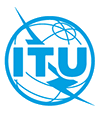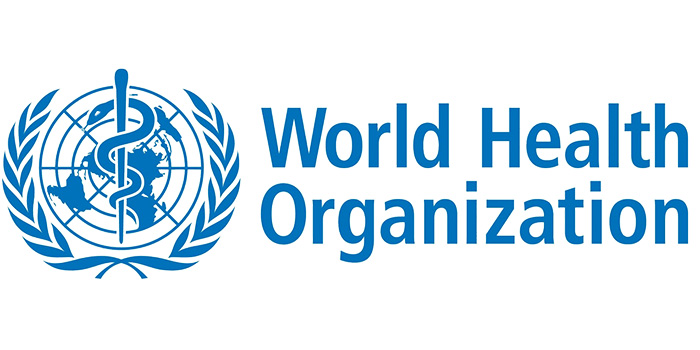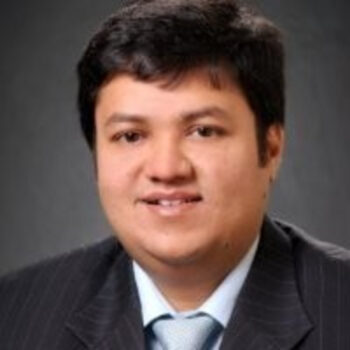
The ITU/WHO Focus Group on artificial intelligence for health (FG-AI4H) works in partnership with the World Health Organization (WHO) to establish a standardized assessment framework for the evaluation of AI-based methods for health, diagnosis, triage or treatment decisions. Participation in the FG-AI4H is free of charge and open to all. The group was established by ITU-T Study Group 16 at its meeting in Ljubljana, Slovenia, 9-20 July 2018.
The FG scope and general process are described in a commentary in The Lancet and a white paper. The documentation of all previous meetings can be found on the collaboration site.
Participation in the Focus Group is primarily through its online platforms such as the mailing list, the collaboration site, and e-meetings.
 |  |
12th ITU/WHO Focus Group on AI for Health meeting
Virtual meeting, 19-21 May 2021
The goal of the Focus Group is to establish a standardized assessment framework for the evaluation of AI-based method for health. Participation is open and free of charge.
Developing a benchmarking process for health AI models that can act as an international, independent, standard evaluation framework. To establish this evaluation and benchmarking process, FG-AI4H is calling for participation from medical, public health, AI, data analytics, and policy experts.
Topic groups are being formed by communities of stakeholders allowing FG-AI4H to develop its processes for AI evaluation and benchmarking specific for each health topic. Each topic use case will be reviewed for its relevance and should impact a large and diverse part of the global population or solve a health problem that is difficult or expensive.
A multi-stakeholder, inter-disciplinary approach…

GOVERNMENT

INDUSTRY

UN AGENCIES

CIVIL SOCIETY

INTERNATIONAL ORGANIZATIONS

ACADEMIA
Topic Areas
Dermatology
One in every three cancers diagnosed is a skin cancer, and every year approximately 3 million new cases of skin cancer is detected worldwide, more than breast cancer, prostate cancer, lung cancer and colon cancer combined.
Falls among the elderly
Falls are one of the most common health problems in the elderly population, about a third of community-dwelling adults aged 65 years or older fall each year, and these events represent more than 50% of the hospitalizations due to lesions in this age group.
Ophthalmology
Dedicated to using artificial intelligence for the detection and diagnostics of ophthalmological diseases and conditions, in particular Diabetic Retinopathy (DR), from retinal images.
Psychiatry
Psychiatric disorders are among the most common and debilitating illnesses across the lifespan and begin usually prior to age 24, which emphasizes the need for increased focus on studies of the developing brain.
Symptom assessment
AI-based symptom assessment is one of the most promising applications in the field of AI4H. The World Health Organization estimates the shortage of Global Health workers to increase from 7.2 million in 2013 to 12.9 million by 2035.
Tuberculosis
Tuberculosis (TB) is a huge problem worldwide with about 50 % of the cases in BRICS countries. With an estimated 2.3 million reported cases in 2011 and an additional 1 million undocumented cases, India has the highest prevalence of TB in the world.
Snakebite and snake identification
Snakebite envenoming is a major global health issue and neglected humanitarian crisis. Today, 5 million snake bites occur globally every year causing 125,000 deaths and 400,000 victims of disability/disfigurement.
Cardiovascular disease risk prediction
Histopathology
Management Team

Thomas Wiegand is professor at the Technical University of Berlin and executive director of the Fraunhofer Heinrich Hertz Institute, Berlin, Germany. He heads research teams working on: video coding, machine learning, computer vision, and mobile communications.
Wiegand substantially contributed to the creation of the H.264/AVC, H.265/HEVC, and H.266/VVC standards. For H.264/MPEG-4 AVC, Wiegand was one of the chairmen of the Joint Video Team (JVT) standardization committee that created the standard and was the chief editor of the standard itself. He was also an active technical contributor to all these standards. Wiegand also holds a chairmanship position in the ITU-T VCEG and previously in ISO/IEC MPEG standardization organizations. From 2018-2023, he was the chair of the ITU/WHO Focus Group on Artificial Intelligence for Health. Since 2014, Thomson Reuters named him in their list of “The World’s Most Influential Scientific Minds” as one of the most cited researchers in his field. He is a recipient of the ITU150 Award. He has been elected to the German National Acdemy of Engineering (Acatech) and the National Academy of Science (Leopoldina).

Dr. Krishnamurthy serves as a senior technical officer and the focal point for eHealth standardization and interoperability efforts at the World Health Organization in Geneva, Switzerland. He has extensive experience in designing, implementing, coordinating, and managing national and subnational eHealth systems and services, including health information systems, emergency operations centers, and public health surveillance information systems. Dr. Krishnamurthy has also assisted numerous countries in all of the six WHO Regions in their development and implementation of national and sub-national eHealth strategies, standardization and interoperability of eHealth systems and services, and utilization of strategic information for evidence-based public health decision-making. Previously Dr. Krishnamurthy served as Senior Informatics Advisor at the United States Centers for Disease Control and Prevention (CDC) in Atlanta. He holds many prestigious honors and awards.

Sameer led the development and negotiations with 194 countries on the WHO Global Strategy on Digital health and is currently leading all initiatives on Ai for health at the Digital health and innovations department of WHO, he is also the Vice chair – WHO and ITU Focus group on AI4 Health
Sameer joined WHO headquarters in Geneva in Feb 2008. With WHO, he has worked extensively on Digital Health including mHealth, Big Data and AI and setup several digital global initiatives. He has provided in country support in over 75+ countries across all WHO regions of WHO & has provided oversight for work with several partners. Has contributed close to 100 publications, guidance and reports on digital health and Ai and is a core digital enthusiast and has been coveted with the WHO DGs reward for excellence in 2016 and the Greenpeace Innovations Award in 2018 for his work.

Serial entrepreneur, investor, and futurist, Stephen’s accomplishments and global leadership positions with more than 100 programs / organizations and 300+ recognitions are too numerous to list. His leadership roles working daily with more than 1 million CEOs, Investors, Scientists with the world’s leading CEO, scientific, technical and financial organizations allow him a unique vantage point to oversee where transformative innovation and investments are heading in the coming years. Stephen is the visionary behind REDDS whose tireless work has positioned REDDS to take advantage of the globally unique superior intelligence received by the group. As a small sampling representing under 1% of Stephen’s current activities, he is the:
- Founder of UN ITU, AI FOR GOOD, adopted by governments, corporations, and academia, with 3+ billion reach, as the world’s largest AI innovation solutions program, startup Innovation Factory, and daily summit driving AI top innovative business solutions such as generative AI (BingAI, Microsoft Azure OpenAI, GPT4-5) across 17 United Nations Sustainable Development Goals and empowering CEO-led impact programs for the benefit of humanity and Earth Ecosystems such as with KIN (Knowledge Impact Network) and Million PeaceMakers. Ongoing judge and Grand Finale judge from the founding of the #AIForGood Innovation Factory with the last Grande Finale winner announced at the July AIForGood 2023 in this news release.
- Founding member of WFP Innovation Accelerator advisory council in 2017 and with the November 2023 announcement of two portfolio startups winning the 1 million UK pounds prize each, top innovation Earthshot Prize. WFP is the 2020 Nobel Peace Prize recipient, multiple awardee of Apple, Good, Fast Company awards for innovation.
- From 2009 serving in roles as: current ACM practitioner board (PB) and past chair / current ACM PB chair professional development committee (PDC) / current board PDC TechTalks committee / current board ByteCast committee / current board working group head on startups-entrepreneurship; ACM is the world’s largest computing organization. From 1989 serving in roles as: past CIPS President and Chair; CIPS founding fellow advising CEO; CIPS is Canada’s national ICT organization. From 2007, serving in roles as: founder and current vice-chair IFIP IP3, founder and current chair IFIP Industry Council; IFIP is the UNESCO-founded independent federation of national and international ICT organizations with CIPS, ACM, IEEE as some of the founders. From 2004 serving in roles as: NPA board member, NPA founding fellow; NPA is a global infrastructure ICT organization. From 2016 serving in roles as: IEEE CS board committee member; current IEEE TEMS board committee member and active keynote in IEEE TEMS conferences/summits; current IEEE RASSE conference organizer/designer and opening keynote for industry forum in 2021, 2022, 2023; advisor to IEEE Entrepreneurship; IEEE is the world’s largest technology organization.
- Founder of Fintech Ideas Festival, Technology Advisory Council, providing industry solutions ten years into the future for the top 100 CEOs representing nearly US $100 Trillion in managed assets where the CEOs invested in all the transformational tech solutions and startups identified from Stephen 2015 including blockchain, digital identities, mobile financial services, AI/ML, cybersecurity, biometrics, 5/6G, quantum computing, future of fintech, future of the workforce, privacy and data analytics, personalization and precision services, new user/consumer experience from the confluence of the digital / physical / biological. Stephen directed the CEOs into execution focused working groups, monthly innovation forums, private summits. The public facing parts of this private work is captured in an article Stephen wrote for IT World in January 2017, “Top CEOs and futurists on the future of financial services and technology”, a rare public video from January 2017 private CEO summit, where Stephen provides his foresight insights to questions. The President and chair of the CEOs technology group introduces Stephen, “Introduce Stephen Ibaraki. Stephen is the entrepreneur and chairman of the Fintech Ideas Festival, a tremendous help and a lot of the people are here today came through Steve’s connections and his work in the industry. Steve’s has a fantastic executive leadership career, distinguished advisor for startups and global fortune 500 companies and governments specifically on strategy, most recently organizing the current AI for Good Summit in Geneva in June 2017 with the United Nations ITU and XPRIZE.” There is a joint article written for the CEOs which also appeared with the United Nations in 2017, “Trending: AI in finance” by Stephen Ibaraki, founding chairman FSR technology advisory council and Hari Gopalkrishnan, managing director, platforms and technology Bank of America. Article from Forbes in 2019: https://www.forbes.com/sites/cognitiveworld/2019/04/17/is-financial-services-ready-for-broad-5th-machine-age-technology-adoption/?sh=46d1cec376cf Is Financial Services Ready For Broad 5th Machine Age Technology Adoption?
- Founding chair YPO Impact Advisory Board and YPO EU Impact Summit Advisory Board, creating workable business solutions for the world’s largest opportunities/challenges and focused on purposeful leadership / business / capital & investments / innovation. YPO: 35K CEOs, US $9 Trillion annual revenue (ranking 3rd in GDP if considered a country) across 150+ countries, 500 chapters, employing 22 million. With work underway since May 2019, the first summit Oct 2020 and continuing as chair impact advisory board with first global impact summit (YPOGIS2023 in Feb 2023) and continuing in 2024 and beyond;
- Recipient of 21 Microsoft Global Awards (18 MVP Awards), 40+ overall recognitions, with six years MVP 2018-2023 in AI, with the world’s largest and top corporation in technology and advising Microsoft under NDA since the 1970s, recognizing decades of lifetime achievement, global–leadership, entrepreneurship, investments, disruptive innovation. As noted by Microsoft CEO Satya Nadella in award citations, “We recognize and value your exceptional contributions and commitment to technical communities worldwide. By sharing your real-world expertise and technical skills, you demonstrate outstanding technical community leadership. Thank you.” Judging as MVP, the largest youth innovation Award program, the Imagine Cup which empowers 2+ million students over 20 years. From Microsoft news release in Microsoft Imagine Cup Junior 2023, “The Imagine Cup Junior is more than a competition. It is a learning journey that empowers students to develop their skills in AI and other technologies. These students have shown us how AI can be used for good, to solve some of the world’s most pressing problems and create a better future for everyone. I’m proud to be a part of this journey and congratulate all the competitors – and winners — for their remarkable achievements.” Stephen Ibaraki, Founder, UN AI for Good and Imagine Cup Junior 2023 judge. Spotlighted by the Microsoft’s MVP program in 2023 for Stephen’s mentorship global contributions in serving startups, innovation and entrepreneurship: “Stephen’s mentorship initiatives have been pivotal in propelling entrepreneurship and innovations that yield significant societal benefits. His dynamic involvement spans a wide spectrum of communities, including CEOs, UN agencies, scientific/engineering entities, investors, media outlets, social media platforms, and more. He says, “Mentorship, or ‘support’ for innovation, entrepreneurship, and startups occurs at many levels. Initially, building awareness, directing freely available resources and open startup platforms, helping grow the startups presence, providing advice, supporting investment, helping startups to scale”… article continues with examples from Imagine Cup, #AIforGood Innovation Factory, WFP Innovation Accelerator, CEO Leadership Alliance, non-profit organizations IEEE TEMS, ACM, CIPS. Invited advisor, mentor, investor for the Microsoft Startup Founders Hub, founded in 2023.
- Active investor, investment / innovation / foresight advisor, serving on investment committees. Examples: Global Chair and managing general partner REDDS Capital; Adastral Funds; Southern California Master Fund (SCMF-CEO led funds of Funds); DTGO/MQDC; T&B Media Global; Terasaki Institute Biomedical Innovation (TIBI); serving on the investment selection committee for the new Canadian government sovereign funding renewed venture capital catalyst initiative (VCCI) adding up to 1.4 billion in the VC ecosystem. Canada in ranked in the top 5 in VC in the 38 countries of the OECD. Government announcements on the renewed VCCI: VCCI , Funds of Funds selection committee , Minister announcement of Fund of Funds , Minister announcement on Inclusive Growth Stream Funding. For VCCI, examples of current contributions: Member of the Canadian government’s renewed Venture Capital Catalyst Initiative (VCCI) selection committee for the fund of funds and inclusive growth streams. See a letter of thanks outlining his work here on the Inclusive Growth stream 1 and here on the Funds of Funds stream. From the Minister,” I would like to personally thank you for your participation on the renewed Venture Capital Catalyst Initiative (VCCI) selection committee for the inclusive growth stream. Your report to the Deputy Minister of Economic Development was provided to me for my consideration and review. I appreciated the recommendations the committee developed on the selection of funds for the VCCI program, which demonstrated thoughtful deliberation and consideration. I particularly welcomed the recognition of the significant role of enhancing diversity, equity, and inclusion in Canadian venture capital as part of a market-driven investment program. As a member of the selection committee, you took on an important role contributing your expertise, insights, and leadership. Your industry experience provided a valuable lens through which to assess the applications, supporting the Government of Canada in its efforts to enhance access to capital to support Canadian entrepreneurs. I would like to take this opportunity to reiterate my thanks and extend my personal appreciation for the time and effort you committed to support the renewed VCCI.”
- Examples of recent activities (at the time of profile creation: 23-11-13) for fall 2023: Host/moderator supporting organizer for O’Reilly Generative AI for Government superstream summit; opening keynote and conference organizer/designer IEEE RASSE 2023 Conference Industry Forum; MC for the private YPO UNGA summit; moderator/speaker for 6th Annual CEO LOP Summit co-hosted by Salesforce; Mentor and AMA (Ask Me Anything) for CEO Leadership Alliance OC AI region AI course; Plenary speaker at UNAOC’S 2nd Global Dialogue on Artificial Intelligence “Towards the World of #OneHumanity” on Human Centered AI
- Contributor to Forbes / Cognitive World and IT World Canada on leading new investments, innovation, entrepreneurship.
- Stephen conducts interviews with global experts since the 1970s appearing with news channels, Forbes, IT World Canada, ACM, IEEE/IEEE TEMS, IFIP, NPA, CIPS, KNVI, The Brand Called You (and their 20+ platforms) and more.
More here on lifetime achievement for innovation, investments, entrepreneurship as CIPS Founding Fellow and in LinkedIn.

Naomi Lee is Executive Editor (Digital) for The Lancet. Naomi handles peer review and commissioning for The Lancet with a special interest in surgery, health informatics and medical technology. As part of the marketing and communications team, she also leads digital transformation for The Lancet group. Naomi trained in surgery, specializing in urology and has worked in the United Kingdom, Argentina, and Mexico. She studied medicine at Cambridge University and King’s College London, and is currently studying data science at University College London. Naomi joined The Lancet in 2014.
 | Products
| ProductsWorking Groups
How to Register
An ITU user account is required to register your interest in the AI for health activities.
Already have an ITU user account?
1. Log-in and complete the form to register for the FG-AI4H meeting.
– TIES access is not necessary to register.
– Indicate whether you will be participating on-site or remotely.
– Please note that visa assistance is only available for ITU members.
2. You will receive a confirmation email that you have been registered to the FG-AI4H meeting.
Not an ITU member?
Don’t have an account?
1. Visit the ITU User Account Log-in page and select “I am a new user”.
– If your organization is an ITU member, select the right category
(Attention! The Academia bullet is only for Academia members).
– If your organization is not an ITU member, choose “Non ITU members”
2. Fill in the rest of the information. Once completed, you will immediately receive an email to activate your ITU user account.
3. Log-in and complete the form to register for the AI for FG-AI4H meeting
Subscribe to the Mailing List
Subscribe to the FG-AI4H mailing list to receive updates and announcements.
AI for Health mailing list
1. Click here to open the AI4H service directory.
2. Select fgai4h mailing list and click Subscribe.
Sign up online for a free ITU account
Follow the online process here; if any doubts, please see the video or PDF online guides; or ask the secretariat)
NOTES: Persons NOT working for an ITU member should select the option “Media/Non-member”. “Academia” in that page means academic institutions that are members of ITU. If in doubt, check the search page for ITU member organizations.


 Register here
Register here



